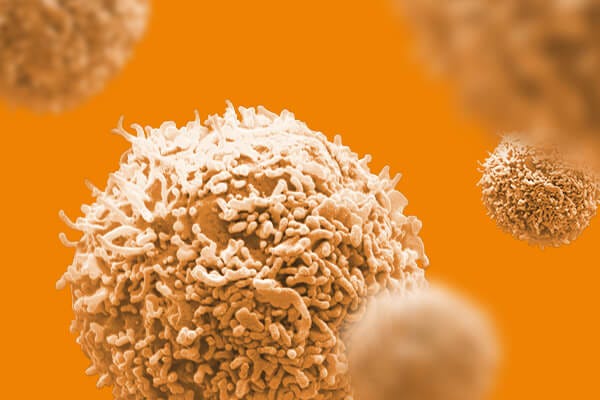技术资料
-
 Esplugues E et al. (MAY 2003) The Journal of experimental medicine 197 9 1093--106
Esplugues E et al. (MAY 2003) The Journal of experimental medicine 197 9 1093--106Enhanced antitumor immunity in mice deficient in CD69.
We investigated the in vivo role of CD69 by analyzing the susceptibility of CD69-/- mice to tumors. CD69-/- mice challenged with MHC class I- tumors (RMA-S and RM-1) showed greatly reduced tumor growth and prolonged survival compared with wild-type (WT) mice. The enhanced anti-tumor response was NK cell and T lymphocyte-mediated,and was due,at least in part,to an increase in local lymphocytes. Resistance of CD69-/- mice to MHC class I- tumor growth was also associated with increased production of the chemokine MCP-1,diminished TGF-beta production,and decreased lymphocyte apoptosis. Moreover,the in vivo blockade of TGF-beta in WT mice resulted in enhanced anti-tumor response. In addition,CD69 engagement induced NK and T cell production of TGF-beta,directly linking CD69 signaling to TGF-beta regulation. Furthermore,anti-CD69 antibody treatment in WT mice induced a specific down-regulation in CD69 expression that resulted in augmented anti-tumor response. These data unmask a novel role for CD69 as a negative regulator of anti-tumor responses and show the possibility of a novel approach for the therapy of tumors. View Publication -
 S. L. Rogers et al. (JUL 2006) Journal of immunology (Baltimore,Md. : 1950) 177 1 414--21
S. L. Rogers et al. (JUL 2006) Journal of immunology (Baltimore,Md. : 1950) 177 1 414--21A role for DNA hypomethylation and histone acetylation in maintaining allele-specific expression of mouse NKG2A in developing and mature NK cells.
The repertoire of receptors that is expressed by NK cells is critical for their ability to kill virally infected or transformed cells. However,the molecular mechanisms that determine whether and when NK receptor genes are transcribed during hemopoiesis remain unclear. In this study,we show that hypomethylation of a CpG-rich region in the mouse NKG2A gene is associated with transcription of NKG2A in ex vivo NK cells and NK cell lines. This observation was extended to various developmental stages of NK cells sorted from bone marrow,in which we demonstrate that the CpGs are methylated in the NKG2A-negative stages (hemopoietic stem cells,NK progenitors,and NKG2A-negative NK cells),and hypomethylated specifically in the NKG2A-positive NK cells. Furthermore,we provide evidence that DNA methylation is important in maintaining the allele-specific expression of NKG2A. Finally,we show that acetylated histones are associated with the CpG-rich region in NKG2A positive,but not negative,cell lines,and that treatment with the histone deacetylase inhibitor trichostatin A alone is sufficient to induce NKG2A expression. Treatment with the methyltransferase inhibitor 5-azacytidine only is insufficient to induce transcription,but cotreatment with both drugs resulted in a significantly greater induction,suggesting a cooperative role for DNA methylation and histone acetylation status in regulating gene expression. These results enhance our understanding of the formation and maintenance of NK receptor repertoires in developing and mature NK cells. View Publication -
 Kawakami Y et al. (JUN 2009) The Journal of experimental medicine 206 6 1219--25
Kawakami Y et al. (JUN 2009) The Journal of experimental medicine 206 6 1219--25Inhibition of NK cell activity by IL-17 allows vaccinia virus to induce severe skin lesions in a mouse model of eczema vaccinatum.
Threats of bioterrorism have renewed efforts to better understand poxvirus pathogenesis and to develop a safer vaccine against smallpox. Individuals with atopic dermatitis are excluded from smallpox vaccination because of their propensity to develop eczema vaccinatum,a disseminated vaccinia virus (VACV) infection. To study the underlying mechanism of the vulnerability of atopic dermatitis patients to VACV infection,we developed a mouse model of eczema vaccinatum. Virus infection of eczematous skin induced severe primary erosive skin lesions,but not in the skin of healthy mice. Eczematous mice exhibited lower natural killer (NK) cell activity but similar cytotoxic T lymphocyte activity and humoral immune responses. The role of NK cells in controlling VACV-induced skin lesions was demonstrated by experiments depleting or transferring NK cells. The proinflammatory cytokine interleukin (IL)-17 reduced NK cell activity in mice with preexisting dermatitis. Given low NK cell activities and increased IL-17 expression in atopic dermatitis patients,these results can explain the increased susceptibility of atopic dermatitis patients to eczema vaccinatum. View Publication -
 Akatsuka A et al. (SEP 2010) International immunology 22 9 783--90
Akatsuka A et al. (SEP 2010) International immunology 22 9 783--90Tumor cells of non-hematopoietic and hematopoietic origins express activation-induced C-type lectin, the ligand for killer cell lectin-like receptor F1.
Killer cell lectin-like receptor F1 (KLRF1) is an activating C-type lectin-like receptor expressed on human NK cells and subsets of T cells. In this study,we show that activation-induced C-type lectin (AICL) is a unique KLRF1 ligand expressed on tumor cell lines of hematopoietic and non-hematopoietic origins. We screened a panel of human tumor cell lines using the KLRF1 reporter cells and found that several tumor lines expressed KLRF1 ligands. We characterized a putative KLRF1 ligand expressed on the U937 cell line. The molecular mass for the deglycosylated ligand was 28 kDa under non-reducing condition and 17 kDa under reducing condition,suggesting that the KLRF1 ligand is a homodimer. By expression cloning from a U937 cDNA library,we identified AICL as a KLRF1 ligand. We generated mAbs against AICL to identify the KLRF1 ligands on non-hematopoietic tumor lines. The anti-AICL mAbs stained the tumor lines that express the KLRF1 ligands and importantly the interaction of KLRF1 with the KLRF1 ligand on non-hematopoietic tumors was completely blocked by the two anti-AICL mAbs. Moreover,NK cell degranulation triggered by AICL-expressing targets was partially inhibited by the anti-AICL mAb. Finally,we demonstrate that AICL is expressed in human primary liver cancers. These results suggest that AICL is expressed on tumor cells of non-hematopoietic origins and raise the possibility that AICL may contribute to NK cell surveillance of tumor cells. View Publication -
 Bouchentouf M et al. (DEC 2010) Journal of immunology (Baltimore,Md. : 1950) 185 11 7014--25
Bouchentouf M et al. (DEC 2010) Journal of immunology (Baltimore,Md. : 1950) 185 11 7014--25Induction of cardiac angiogenesis requires killer cell lectin-like receptor 1 and α4β7 integrin expression by NK cells.
Recent findings indicate that NK cells are involved in cardiac repair following myocardial infarction. The aim of this study is to investigate the role NK cells in infarct angiogenesis and cardiac remodeling. In normal C57BL/6 mice,myelomonocytic inflammatory cells invaded infarcted heart within 24 h followed by a lymphoid/NK cell infiltrate by day 6,accompanied by substantial expression of IL-2,TNF-α,and CCL2. In contrast,NOD SCID mice had virtually no lymphoid cells infiltrating the heart and did not upregulate IL-2 levels. In vitro and in vivo,IL-2-activated NK cells promoted TNF-α-stimulated endothelial cell proliferation,enhanced angiogenesis and reduced fibrosis within the infarcted myocardium. Adoptive transfer of IL-2-activated NK cells to NOD SCID mice improved post-myocardial infarction angiogenesis. RNA silencing technology and neutralizing Abs demonstrated that this process involved α4β7 integrin/VCAM-1 and killer cell lectin-like receptor 1/N-cadherin-specific binding. In this study,we show that IL-2-activated NK cells reduce myocardial collagen deposition along with an increase in neovascularization following acute cardiac ischemia through specific interaction with endothelial cells. These data define a potential role of activated NK cells in cardiac angiogenesis and open new perspectives for the treatment of ischemic diseases. View Publication -
 Norman JM et al. (OCT 2011) Nature immunology 12 10 975--83
Norman JM et al. (OCT 2011) Nature immunology 12 10 975--83The antiviral factor APOBEC3G enhances the recognition of HIV-infected primary T cells by natural killer cells.
APOBEC3G (A3G) is an intrinsic antiviral factor that inhibits the replication of human immunodeficiency virus (HIV) by deaminating cytidine residues to uridine. This causes guanosine-to-adenosine hypermutation in the opposite strand and results in inactivation of the virus. HIV counteracts A3G through the activity of viral infectivity factor (Vif),which promotes degradation of A3G. We report that viral protein R (Vpr),which interacts with a uracil glycosylase,also counteracted A3G by diminishing the incorporation of uridine. However,this process resulted in activation of the DNA-damage–response pathway and the expression of natural killer (NK) cell–activating ligands. Our results show that pathogen-induced deamination of cytidine and the DNA-damage response to virus-mediated repair of the incorporation of uridine enhance the recognition of HIV-infected cells by NK cells. View Publication -
 Collins SM et al. (DEC 2013) Cancer immunology,immunotherapy : CII 62 12 1841--9
Collins SM et al. (DEC 2013) Cancer immunology,immunotherapy : CII 62 12 1841--9Elotuzumab directly enhances NK cell cytotoxicity against myeloma via CS1 ligation: evidence for augmented NK cell function complementing ADCC.
Elotuzumab is a monoclonal antibody in development for multiple myeloma (MM) that targets CS1,a cell surface glycoprotein expressed on MM cells. In preclinical models,elotuzumab exerts anti-MM efficacy via natural killer (NK)-cell-mediated antibody-dependent cellular cytotoxicity (ADCC). CS1 is also expressed at lower levels on NK cells where it acts as an activating receptor. We hypothesized that elotuzumab may have additional mechanisms of action via ligation of CS1 on NK cells that complement ADCC activity. Herein,we show that elotuzumab appears to induce activation of NK cells by binding to NK cell CS1 which promotes cytotoxicity against CS1(+) MM cells but not against autologous CS1(+) NK cells. Elotuzumab may also promote CS1-CS1 interactions between NK cells and CS1(+) target cells to enhance cytotoxicity in a manner independent of ADCC. NK cell activation appears dependent on differential expression of the signaling intermediary EAT-2 which is present in NK cells but absent in primary,human MM cells. Taken together,these data suggest elotuzumab may enhance NK cell function directly and confer anti-MM efficacy by means beyond ADCC alone. View Publication
过滤器
筛选结果
研究领域
- HIV 7 项目
- 免疫 61 项目
- 干细胞生物学 14 项目
- 移植研究 4 项目
- 细胞系制备 3 项目
- 药物发现和毒理检测 3 项目
- 癌症研究 9 项目
- 血管生成细胞研究 1 项目
Show More
Show Less
产品系列
- ALDEFLUOR 2 项目
- ClonaCell 3 项目
- EasySep 44 项目
- MethoCult 10 项目
- MyeloCult 4 项目
- RosetteSep 11 项目
- StemSpan 2 项目
- TeSR 1 项目
Show More
Show Less
细胞类型
- B 细胞 236 项目
- CD4+ 46 项目
- CD8+ 29 项目
- CHO细胞 19 项目
- HEK-293细胞(人胚肾293细胞) 2 项目
- HUVEC细胞(人脐静脉内皮细胞) 1 项目
- NK 细胞 175 项目
- PSC衍生 43 项目
- T 细胞 452 项目
- 上皮细胞 127 项目
- 中胚层 5 项目
- 乳腺细胞 103 项目
- 先天性淋巴细胞 40 项目
- 全血 8 项目
- 其他子集 1 项目
- 其他细胞系 9 项目
- 内皮细胞 13 项目
- 内皮集落形成细胞(ECFCs) 3 项目
- 内胚层 3 项目
- 前列腺细胞 20 项目
- 单个核细胞 92 项目
- 单核细胞 191 项目
- 多能干细胞 1985 项目
- 小胶质细胞 4 项目
- 巨噬细胞 43 项目
- 巨核细胞 10 项目
- 心肌细胞 20 项目
- 成骨细胞 9 项目
- 星形胶质细胞 6 项目
- 杂交瘤细胞 97 项目
- 树突状细胞(DCs) 132 项目
- 气道细胞 4 项目
- 淋巴细胞 84 项目
- 癌细胞及细胞系 146 项目
- 癌细胞和细胞系 1 项目
- 白细胞 17 项目
- 白细胞单采样本 12 项目
- 白血病/淋巴瘤细胞 14 项目
- 监管 1 项目
- 真皮细胞 2 项目
- 神经元 2 项目
- 神经干/祖细胞 471 项目
- 神经细胞 16 项目
- 粒细胞及其亚群 106 项目
- 红系细胞 12 项目
- 红细胞 12 项目
- 肌源干/祖细胞 10 项目
- 肝细胞 35 项目
- 肠道细胞 90 项目
- 肾细胞 4 项目
- 肿瘤细胞 26 项目
- 胰腺细胞 16 项目
- 脂肪细胞 6 项目
- 脑肿瘤干细胞 101 项目
- 血小板 4 项目
- 血浆 3 项目
- 血管生成细胞 4 项目
- 调节性细胞 11 项目
- 软骨细胞 8 项目
- 造血干/祖细胞 983 项目
- 造血干祖细胞 6 项目
- 造血细胞 4 项目
- 间充质基质细胞 20 项目
- 间充质干/祖细胞 204 项目
- 间充质干祖细胞 1 项目
- 间充质细胞 4 项目
- 骨髓基质细胞 1 项目
- 骨髓间质细胞 1 项目
- 髓系细胞 147 项目
- 肾脏细胞 5 项目
- CD4+T细胞 107 项目
- CD8+T细胞 88 项目
- PSC衍生上皮细胞 30 项目
- PSC衍生中胚层 20 项目
- PSC衍生内皮细胞 12 项目
- PSC衍生内胚层 20 项目
- PSC衍生心肌细胞 21 项目
- PSC衍生神经细胞 115 项目
- PSC衍生肝细胞 11 项目
- PSC衍生造血干细胞 25 项目
- PSC衍生间充质细胞 20 项目
- 其他T细胞亚型 25 项目
- 呼吸道细胞 89 项目
- 多巴胺能神经元 6 项目
- 小鼠胚胎成纤维细胞 1 项目
- 浆细胞 12 项目
- 神经元 191 项目
- 调节性T细胞 65 项目
- 骨髓瘤 5 项目
Show More
Show Less


 EasySep™小鼠TIL(CD45)正选试剂盒
EasySep™小鼠TIL(CD45)正选试剂盒





 沪公网安备31010102008431号
沪公网安备31010102008431号